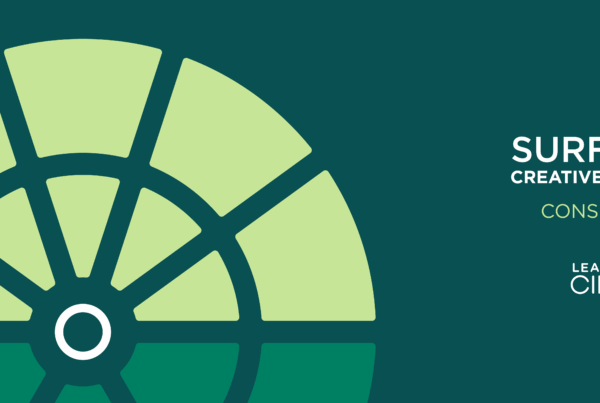I used to work with this guy who always had a hack for everything. He had a hack for growing his online presence. A hack for losing weight. A hack to get free Netflix. He even had a hack for getting free Air Jordans, although I suspect it was just his brother making knock-off sneakers in his garage on a Saturday night. For years, I called this guy Life-MacGyver in my head, and not with a particularly flattering tone. He just seemed so jumbled, so flighty and completely lacking in discipline. After all, I was much more logical about things. I knew how to get things done, in which order things needed to be done and how to get the best results because of my brilliance and attention to process.
Life-MacGyver had no process whatsoever, and it annoyed me to no end.
After a while though, a thought occurred to me. Life-MacGyver was not particularly good at planning things, but he was REALLY good at doing things. He would just try stuff. Most of it was haphazard and didn’t really seem to have a through line, but he kept doing things. Every now and then he would stumble upon a hack that would work for a while but only for a short time before the loophole would be closed. But he was undeterred. He just kept hacking away at life.
That dogged determination is one of the most underrated aspects of creating habits. The desire to just keep trying things until you find what works. To act regularly and quickly. We talk about this all the time in business (the adage “fail fast” comes to mind), but how often do we really do it? I know it’s hard for me.
So, today let’s talk about some simple hacks you can use to kickstart habits that boost your effectiveness as a business leader. To provide a bit of structure, we’re going to pair these “habit hacks” with Creative Competencies from the Leadership Circle Profile to show the path from hack to habit—and connect the dots between the habit you’re starting and the reason you’re starting it. After all, if your habit doesn’t have a good why behind it, you’ll end up like Life-MacGyver, hacking away without knowing where you’re going.
Target Creative Competency: Sustainable Productivity
A leader’s ability to achieve results in a way that maintains or enhances long-term effectiveness.
Why?
Because your goal is huge, and you don’t want to get overwhelmed.
Because you’re trying to avoid paralysis by analysis.
Habit Hack
Start small, practice consistency, and build to the big goal.
One surefire way to fail at accomplishing your goal is to bite off more than you can chew. Can I single-handedly reduce the amount of plastic waste in the ocean? No. Can I reduce the number of single-use plastic containers I use as a consumer? Yes. Can I eat an entire Dairy Queen ice cream cake in one sitting? Despite my best efforts, also no. I must enjoy that sweet, sweet soft serve and signature fudge crunch one slice at a time.
Simply put, sustainable productivity is the ability to make steady progress at a pace that makes sense. Begin with small, relatively easy tasks. Complete those tasks consistently—so consistently that they become part of your normal routine. Then, gradually add new ones or increase the intensity of those you’ve adopted. Make little changes in sequence. Remember, buildings are built brick by brick.
Target Creative Competency: Collaborator
The extent to which a leader engages others in a way that allows everyone involved to discover common ground.
Why?
Because you want to build stronger relationships with your team members.
Because you want to bring out the best in each member of your team.
Habit Hack
Ask a friend or colleague to help you craft a habit.
A popular approach to building new habits and adopting new behaviors is through an accountability-buddy system. You “team up” with a partner who holds you accountable for making progress toward your personal or professional goals while you hold them accountable for making progress toward theirs. Ideally, both parties also provide support, encouragement, and motivation. It’s a sort of positive change quid pro quo. I’ll help you speak up more in meetings if you help stop me from dominating the conversation.
This sort of system can be effective, especially if a desire not to let your accountability buddy down is a strong incentive for you. But imagine that your buddy isn’t only your watchdog in this scenario but is also a true partner in authoring your habits and the ways you can cultivate them. Imagine that you ask for assistance in policing and correcting the actions you believe to be in conflict with your new habit and for input and feedback on what that new habit should be in the first place.
Creating your habits collaboratively results in a community benefit. It encourages open communication and vulnerability. It makes you and your partner more relatable. And it opens doors for future collaborations—on new habits, new projects, new team goals, and more.
Target Creative Competency: Personal Learner
The extent to which a leader actively pursues opportunities to grow in self-awareness, wisdom, knowledge, and insight.
Why?
Because you’re looking for ways to ensure that you’re your best self for your team.
Because you know that the most effective leaders know themselves.
Habit Hack
Read a book. Several books. All the books.
If I learned anything from years of after-school programming on PBS, it’s that reading can be a transportive and transformative experience. Whether you go for a self-help book, an op-ed or article online, or—my personal favorite—a cozy murder mystery, reading exposes you to diverse ideas, prompts self-reflection, and provides opportunities to learn from others’ experiences (fictional or otherwise). All of these contribute to expanding your understanding of yourself and the world around you.
It may surprise you, but the thing you read is less important than the act of engaging with it. Seeking out a variety of perspectives and media, such as graphic novels, social commentary, academic research, historic nonfiction, memoir, and more, allows you to pause and think. Then, you can relate the content to your own experiences, values, and beliefs. Leonardo da Vinci was a master at this kind of action. It was da Vinci’s fascination with human anatomy that allowed him to evolve the kinds of artwork normally painted in the 15th century. As he understood the human skeletal structure, he could more accurately paint a living subject, which eventually gave rise to an entirely new artistic movement.
Even 10 minutes a day of dedicated reading can broaden your perspective and enhance your self-awareness.
Conclusion
We all know that good habits are at the center of accomplishment. We’ve been told for years that success comes after doing something consistently for a long period of time. Whether it’s the 10,000-hour rule or all the thoughts in Atomic Habits, or the work of David Brailsford and the English Cycling team, small, consistent actions bring great rewards. But unless you have the tenacity and willingness to try things every day, just like Life-MacGyver, you may find yourself successful but particularly impactful.
A good habit hack clarifies your actions and makes starting a new habit much less overwhelming. After all, if you can read for 10 minutes a day because you want to broaden your perspective, pretty soon, you start to look forward to that 10 minutes, and then you begin to miss it if you skip a day or two. It’s easier to be consistent when you are progressing toward something that is important to you. And it is that consistency that breeds accomplishment. Not brilliance.
So take the lesson from Life-MacGyver that is the most impactful. Just do something. Chances are, even if you think it’s the wrong thing, you’ll find yourself on the right side of becoming the kind of leader who is always trying to improve—and that is what matters most.





